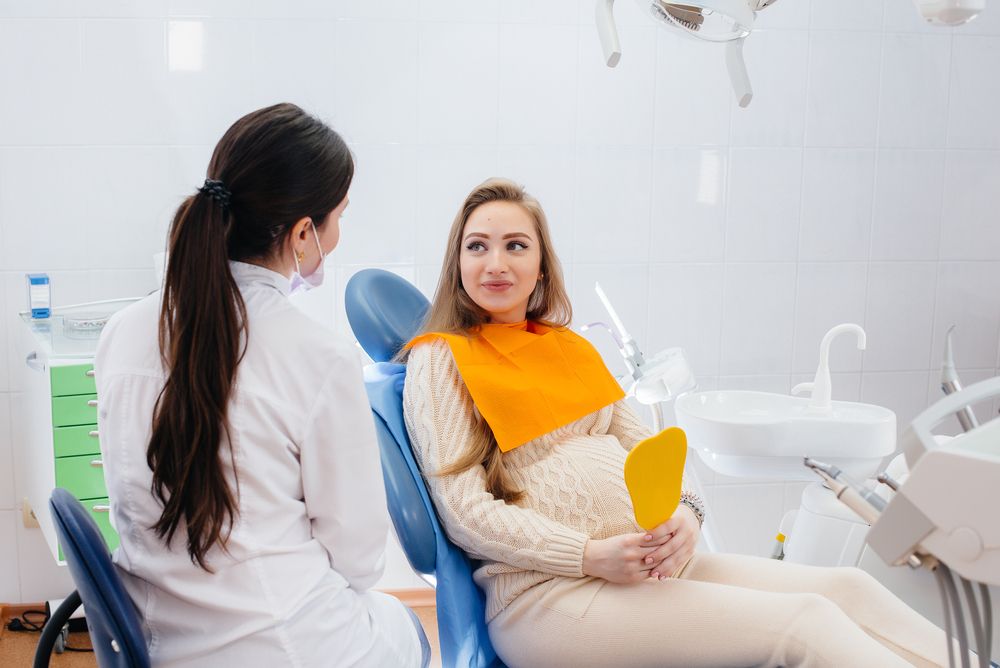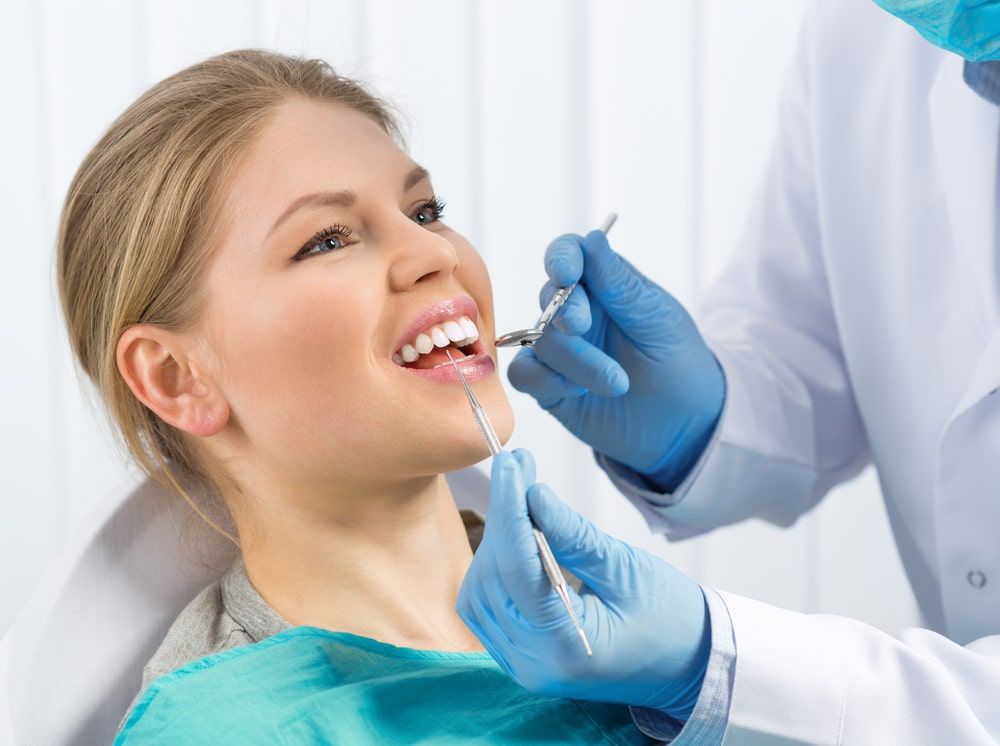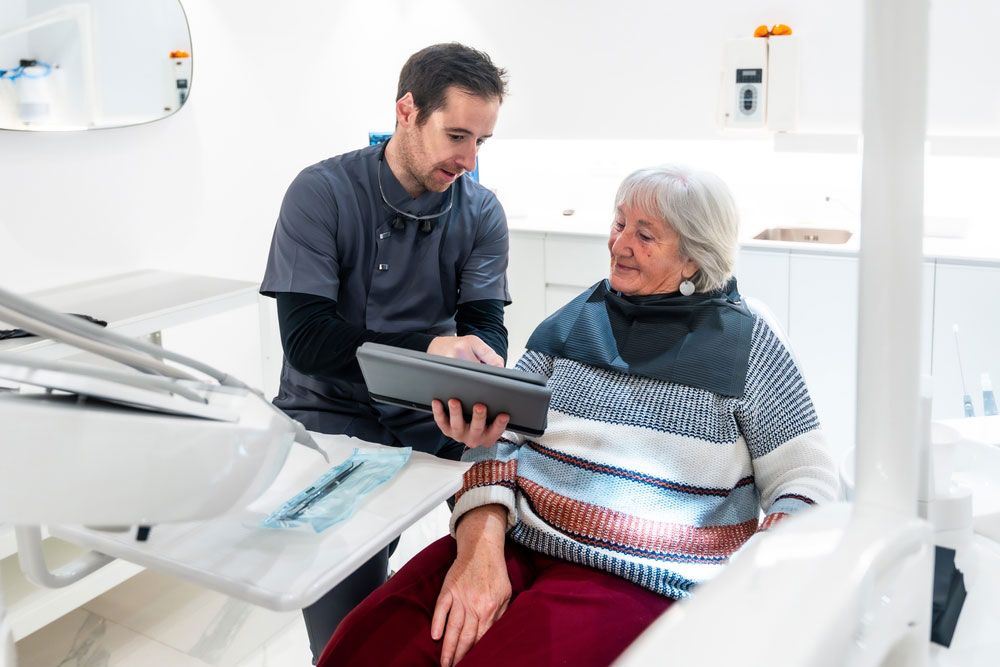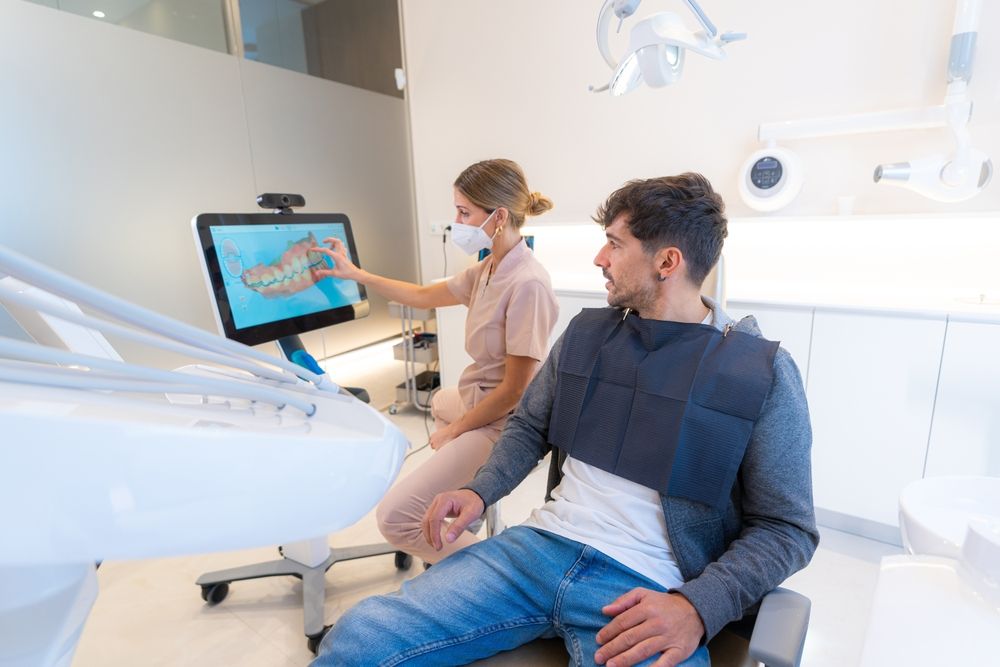Maintaining oral health during pregnancy is often overlooked, but it plays a vital role in protecting both the expectant mother and her developing baby. At Raleigh Endodontics in Raleigh, NC, patients often have questions about how pregnancy affects their dental health and what they should or shouldn’t do during this critical time. Pregnancy triggers a variety of hormonal and physiological changes that can increase the risk of oral health problems. Understanding the right practices and precautions can help prevent complications and promote overall wellness during this transformative stage.
How Pregnancy Affects the Mouth
Pregnancy can affect nearly every part of a woman’s body, and the mouth is no exception. Hormonal changes, particularly increased levels of progesterone and estrogen, can alter how the body responds to plaque and bacteria. This shift can make gums more sensitive and prone to inflammation, leading to a condition known as pregnancy gingivitis. Symptoms often include red, swollen gums that may bleed during brushing or flossing. If not managed properly, gingivitis can progress to periodontitis, a more severe form of gum disease.
In addition to gum problems, many pregnant individuals experience dry mouth or increased salivation, both of which can affect the oral environment. Morning sickness and frequent vomiting expose teeth to stomach acid, which can weaken enamel and make teeth more sensitive. Cravings for sugary or acidic foods may also elevate the risk of tooth decay. These factors combine to create a unique set of oral health challenges that require attention and care throughout pregnancy.
The Importance of Dental Care During Pregnancy
Many people mistakenly believe that dental visits should be avoided during pregnancy. However, routine dental care—including cleanings and necessary treatments—is not only safe but highly recommended. In fact, untreated oral health issues during pregnancy can have consequences beyond the mouth. Research has linked maternal gum disease with adverse pregnancy outcomes, such as premature birth and low birth weight. Therefore, maintaining oral hygiene is more than just a personal health decision—it has implications for fetal development as well.
Routine dental exams allow professionals to identify early signs of decay, infection, or inflammation that might otherwise be overlooked. Preventive care can help manage symptoms and reduce the risk of more serious conditions. Dentists can also provide guidance on maintaining a pregnancy-friendly oral hygiene routine and advise on which medications or procedures are safe during each trimester. Being proactive ensures that both mother and baby are protected from preventable complications.
Pregnancy-Safe Dental Treatments
Most dental treatments are safe during pregnancy, especially during the second trimester when the risk to the fetus is lowest and the mother is usually more comfortable. Routine cleanings and exams are encouraged throughout pregnancy, while urgent procedures such as fillings, root canals, or tooth extractions can generally be performed if needed. Delaying necessary treatment may allow infections to spread, which poses a greater risk than the procedure itself.
Local anesthesia is considered safe during pregnancy and can be used to manage pain during dental procedures. However, elective treatments, such as teeth whitening or cosmetic procedures, are often postponed until after delivery to minimize unnecessary exposure. Diagnostic imaging, such as dental X-rays, can also be performed when needed, as modern digital X-rays use very low radiation levels. Proper shielding of the abdomen and thyroid further reduces any potential risks.
It’s important to inform the dental team of the pregnancy, including how far along you are and whether you’re taking any prenatal vitamins or medications. This helps them tailor treatment to ensure safety for both mother and baby.
Oral Hygiene Practices to Prioritize
Oral hygiene during pregnancy requires diligence and attention to detail. The hormonal shifts and dietary changes make the mouth more susceptible to decay and infection, so maintaining a consistent routine is critical. Brushing at least twice daily with fluoride toothpaste and flossing once a day are foundational practices. A soft-bristled toothbrush is often more comfortable, especially if gums are tender or inflamed.
Those experiencing morning sickness should avoid brushing immediately after vomiting to protect the enamel from further erosion. Instead, rinse the mouth with water or a mixture of water and baking soda to neutralize stomach acid. Once the mouth has recovered, brushing can resume. Staying hydrated helps counteract dry mouth, while chewing sugar-free gum can stimulate saliva production and help cleanse the mouth between meals.
It’s also wise to pay attention to diet. Consuming a variety of nutrient-rich foods—particularly those high in calcium and vitamin D—can strengthen both maternal and fetal teeth. Limiting sugary snacks and drinks reduces the chance of cavities and supports a healthier oral environment overall.
Common Myths and Misconceptions
Pregnancy often brings with it a barrage of myths, and dental care is no exception. One common misconception is that the baby “steals” calcium from the mother’s teeth, leading to tooth loss. In truth, while calcium is essential during pregnancy, it’s drawn from the mother’s bones—not her teeth. Poor oral hygiene, not calcium depletion, is the main cause of dental issues during pregnancy.
Another myth is that dental X-rays are always dangerous during pregnancy. As mentioned earlier, dental X-rays use minimal radiation and are considered safe when necessary precautions are taken. Delaying important diagnostic imaging can prevent the timely treatment of serious problems.
Some also believe that bleeding gums during pregnancy are normal and should be ignored. While pregnancy gingivitis is common, it is not harmless. Ignoring these signs can allow gum disease to progress, so it’s important to seek professional care rather than brushing symptoms aside.
Do’s and Don’ts for Pregnant Patients
To help simplify the essential habits for oral care during pregnancy, here are some key do’s and don’ts:
Do’s:
- Visit your dentist regularly for checkups and cleanings
- Brush twice a day with fluoride toothpaste and floss daily
- Rinse with water after vomiting to protect enamel
- Eat a balanced diet rich in calcium, phosphorus, and vitamins
- Stay hydrated and consider using a humidifier for dry mouth
Don’ts:
- Skip dental appointments due to fear or misinformation
- Delay treatment for cavities or infections
- Brush immediately after vomiting—wait and rinse first
- Indulge frequently in sugary or acidic foods
- Ignore signs of bleeding, swelling, or persistent bad breath
These simple actions can go a long way toward maintaining a healthy smile and reducing the risk of complications.
Long-Term Benefits of Oral Health in Pregnancy
The steps taken to protect oral health during pregnancy often have lasting effects. Establishing good habits during this time can set the foundation for a lifetime of healthy oral care. For many, pregnancy is a motivator to be more mindful of overall health, making it the perfect opportunity to reassess and reinforce daily routines.
Moreover, maternal oral health directly impacts the baby’s health. Infants are not born with cavity-causing bacteria; they acquire them from caregivers. Reducing the maternal bacterial load by managing decay and gum disease lowers the baby’s risk of early childhood cavities. When mothers model consistent hygiene, their children are more likely to adopt similar behaviors as they grow.
At Raleigh Endodontics, patient education is an important part of promoting oral wellness. Pregnancy brings unique challenges, but with the right knowledge and habits, maintaining a healthy smile is both achievable and beneficial for mother and child.
Resources:
Silk, H., Douglass, A. B., Douglass, J. M., & Silk, L. (2008). Oral health during pregnancy. American Family Physician.
George, A., Johnson, M., Blinkhorn, A., Ellis, S., Bhole, S., & Ajwani, S. (2013). The oral health status, practices and knowledge of pregnant women in south-western Sydney. Australian Dental Journal.
Kloetzel, M. K., Huebner, C. E., & Milgrom, P. (2011). Referrals for dental care during pregnancy. Journal of Midwifery & Women’s Health.






